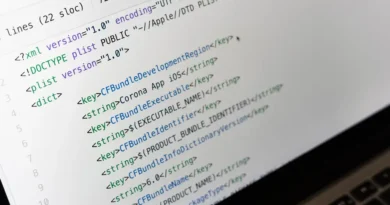10 Ways To Protect Yourself From Online Scams
Whether working from home or interacting remotely with family and friends, it’s essential to safeguard your online personal and sensitive details. Hackers are taking advantage of the pandemic and have expanded the use of various scams such as phishing, malware, and suspicious institutions.
With the increase of social media sites and platforms, consumers make more excellent personal information accessible to the online world and find it incredibly hard to protect critical data. Fortunately, there are several methods to protect your online identity and personal details.
You can help safeguard yourself online by using strong passwords, avoiding malicious links, backing up your data, and much more. Here are our ten most important recommendations for staying safe online.
1. Create Strong Passwords
The most popular method for protecting your online identity is to focus on constructing solid passwords.
When constructing a password, use something that cannot be cracked or decoded quickly. Never use a word or number that can be connected to you, such as your first, middle, or last name, the name of your spouse or kids, your address, phone numbers, businesses, or other identifying symbols or numbers.
To protect yourself from online security breaches, mix up the letters and numbers in your password and use symbols and a mixture of upper and lowercase numbers when possible.
Furthermore, it would be best if you never share your password with anyone else. You may need to reset your passwords many times each year.
2. Use Two-Factor Authentication
Two-factor authentication needs you to verify your identity once you’ve signed in with your username and password. In some instances, you will need to validate your identity by providing a code given to your phone through text or email.
Sometimes times you will be required to answer a security question. Opt for two-factor authentication wherever it is available. It may take you a few more seconds to log in to your accounts, but it may make it less likely that others will be able to get in as well.
3. Install Security Software Tools
Security suites are applications that prevent malicious people and software from invading your computer and taking information and data from you. It includes avoiding malicious software such as malware, viruses, and phishing scams from being installed silently while online.
Norton Antivirus, McAfee Virus Protection, Ad-Aware Pro Security, and AVG ransomware protection are one of the popular security suites that you may use. To secure your personal information online, make sure to purchase from the trusted online software store and install one of these suites.
4. Avoid Phishing Scams
Phishing scams use some techniques to steal users’ personal information and steal an identity. There are many phishing scams out there, and you can prevent them by recognizing them.
To avoid being a phishing scam victim, never open emails or attachments from unknown senders, and never click on unsecured links in strange emails. Also, ignore anyone offering money, new employment possibilities, or requests for charitable donations since this could be a plot to acquire your personal information and online identity.
Like If you are finding recorders of dead people, you should use real social security death records, instead of going to any phishing website.
5. Do not use unsecured public Wi-Fi
Avoid using unprotected public Wi-Fi on your devices if at all necessary. It can expose you to fraudulent activities if you use it. However, if you must use it, avoid putting sensitive data on any website, such as your Social Security number or banking details.
Much better, use a VPN, or virtual private network, to perform your browsing even you’re not at home. It will encrypt the data you transmit and receive, make it much more difficult to intercept.
Also Read: Airfood Recipe
6. Always backup your data
If you’re a victim of malware, like ransomware, you may be unable to recover your data unless you’ve made a backup of your data.
When you back up your data, you can make certain kinds of security breaches less problematic. If a hacker encrypts your data and demands a ransom to unencrypt it, it’s not going to be that big of a deal if you backed it up a week ago.
7. Assure that your devices are up to date.
Technology develops at such a rapid pace that it is challenging to keep up. It is critical to keep your computers, laptops, and phones up-to-date for financial security.
Make sure you have the most recent operating system as well as security software for your device. Don’t break or root any mobile device to get past limitations imposed by your operator or device manufacturer; it would deactivate essential security features that protect against mobile threats.
8. Avoid sharing personal information
It’s easy, and get used to sharing a bit too much personal information online. Still, you may be shocked at how much harm hackers can do with a bit of amount of information.
To be safe, never share identifying information, such as your full name, address, or financial information, with random people you meet online. It would be best to be careful about usernames you create for websites; there is no need for them to include your full name.
Furthermore, limit the amount of information you provide in online surveys or forms. Most of the time, much less personal information is required to complete them.
9. Use your financial information carefully.
Be cautious about where you input sensitive information, such as your credit card number online. Before you buy anything from a website, be sure the URL begins with “https://.” The “s” at the end is crucial since it shows that your connection is encrypted. Don’t buy anything from a site that doesn’t have this.
Also, even if you purchase with a website frequently, you should think twice about keeping your financial data with them. Storing your data on their site can make it simpler for hackers to access if the company’s website or network experiences a data breach.
Also Read: Julie Cristie Neal Net Worth
10. Educate your family
You can take all the necessary protections on your home security network, but if your family and those who use it aren’t doing their bit to keep things secure, your efforts could be in vain.
Assure that everyone who uses your network regularly understands how to help maintain its security. Children can also learn about cyber safety.
Final Words
Staying secure online may seem complicated, but it doesn’t have to be. If you’re still discovering how to protect yourself against cybercriminals or frauds, online approach interactions the same way you will handle encounters with a stranger passing down the street. That is, you probably wouldn’t open anything they give you, hand them your credit card, or lead them to your home address.
Consistently applying these ten methods to protect and monitor your credit score will minimize the chances of getting your identity stolen and immediately alert you if such an issue happens.
Moreover, Internet security solutions with identity theft protection can defend against specific viruses intended to steal personal information by recording your keystrokes or spying on your browser activities. Secure usernames, account numbers, and other personal information from malware and other internet attacks targeting sensitive personal data.




